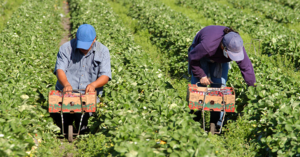John Howard’s description of work/life balance as a ”barbecue stopper” was more accurate than he realised. Not only does it continue to stop conversation among the ”working families” of such interest to political strategists, but the length and unpredictability of working hours makes it increasingly difficult for friends and families to make plans and keep them. According to a recent study by The Australia Institute, around 2.2 million people head out for work each day with little or no idea what time they will finish work that day. Such ”flexible” working arrangements, however, are incompatible with the more rigid aspects of our lives, such as children’s bedtimes, train timetables and soccer training. There is nothing more dangerous in public debate than a poorly defined term and there is no doubt that ”flexibility” is one of the vaguest words floating around our national debates. It almost makes the term sustainability seem meaningful.
Related documents
Between the Lines Newsletter
The biggest stories and the best analysis from the team at the Australia Institute, delivered to your inbox every fortnight.
You might also like
A fair go for temporary workers from the Pacific
On a whistlestop tour of Fiji, Tonga, and Vanuatu in May, Foreign Minister Penny Wong wanted to focus on climate change, security, and aid funding.
Feeling hopeless? You’re not alone. The untold story behind Australia’s plummeting standard of living
A new report on Australia’s standard of living has found that low real wages, underfunded public services and skyrocketing prices have left many families experiencing hardship and hopelessness.
Want to lift workers’ productivity? Let’s start with their bosses
Business representatives sit down today with government and others to talk about productivity. Who, according to those business representatives, will need to change the way they do things?



